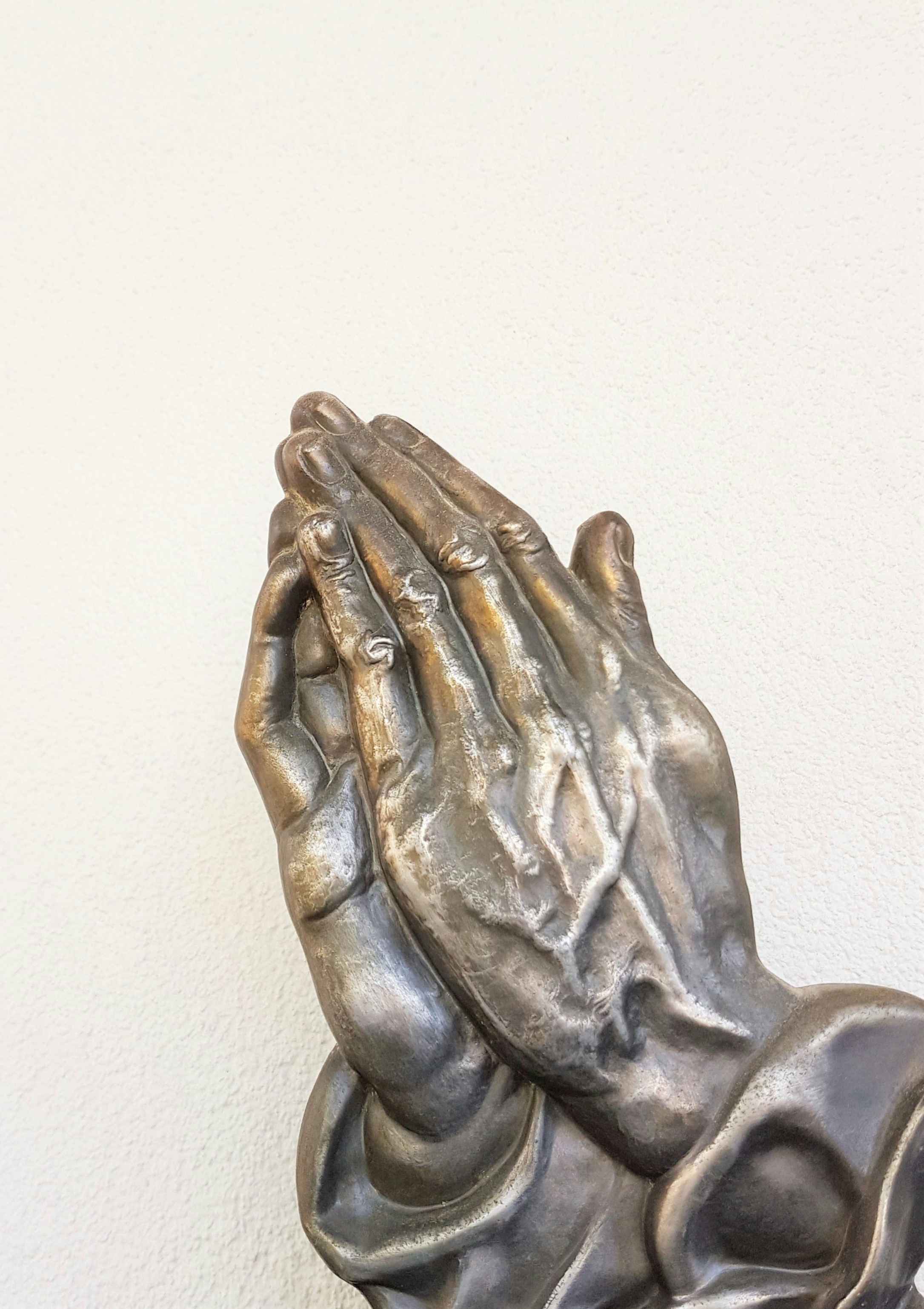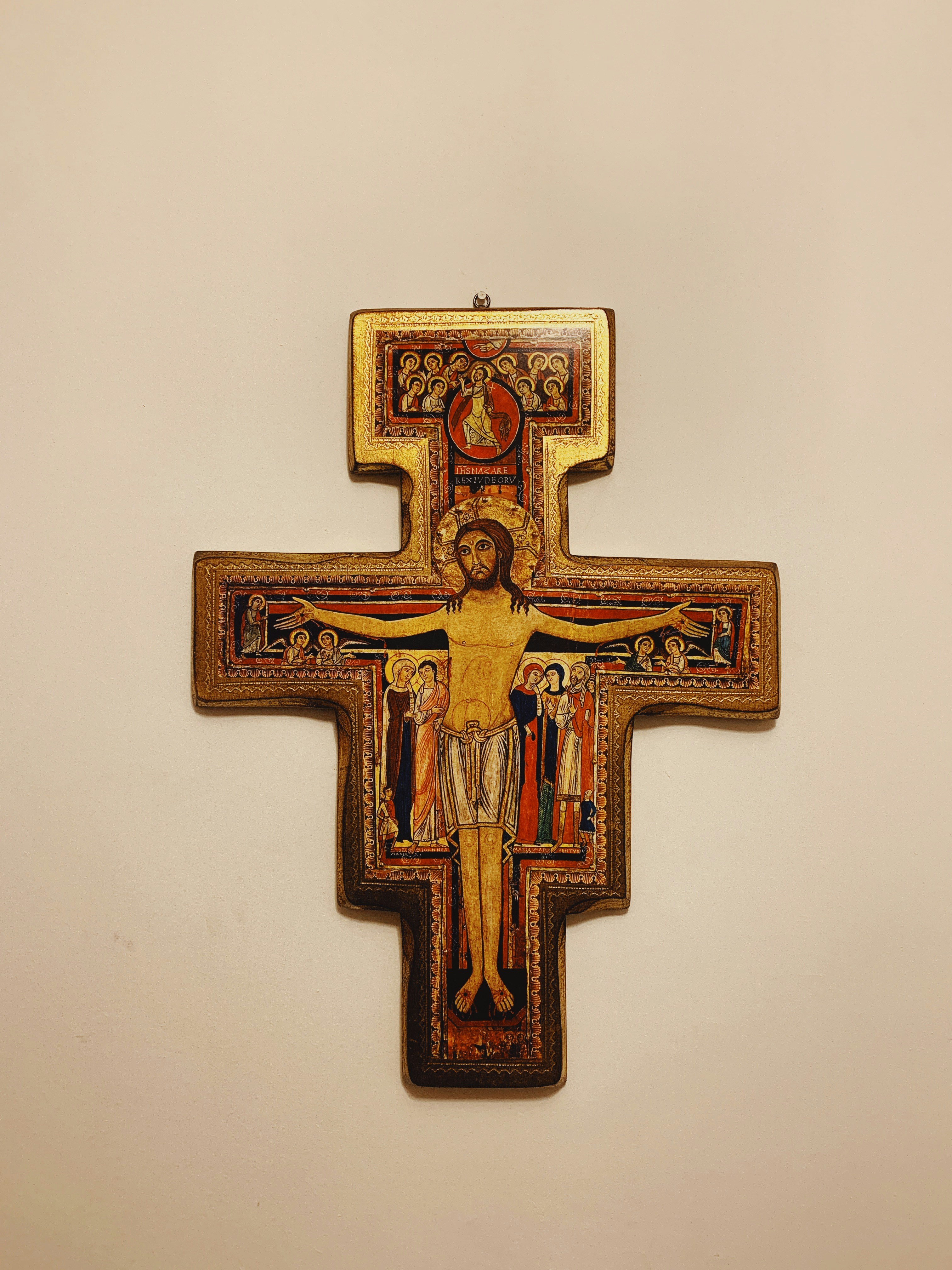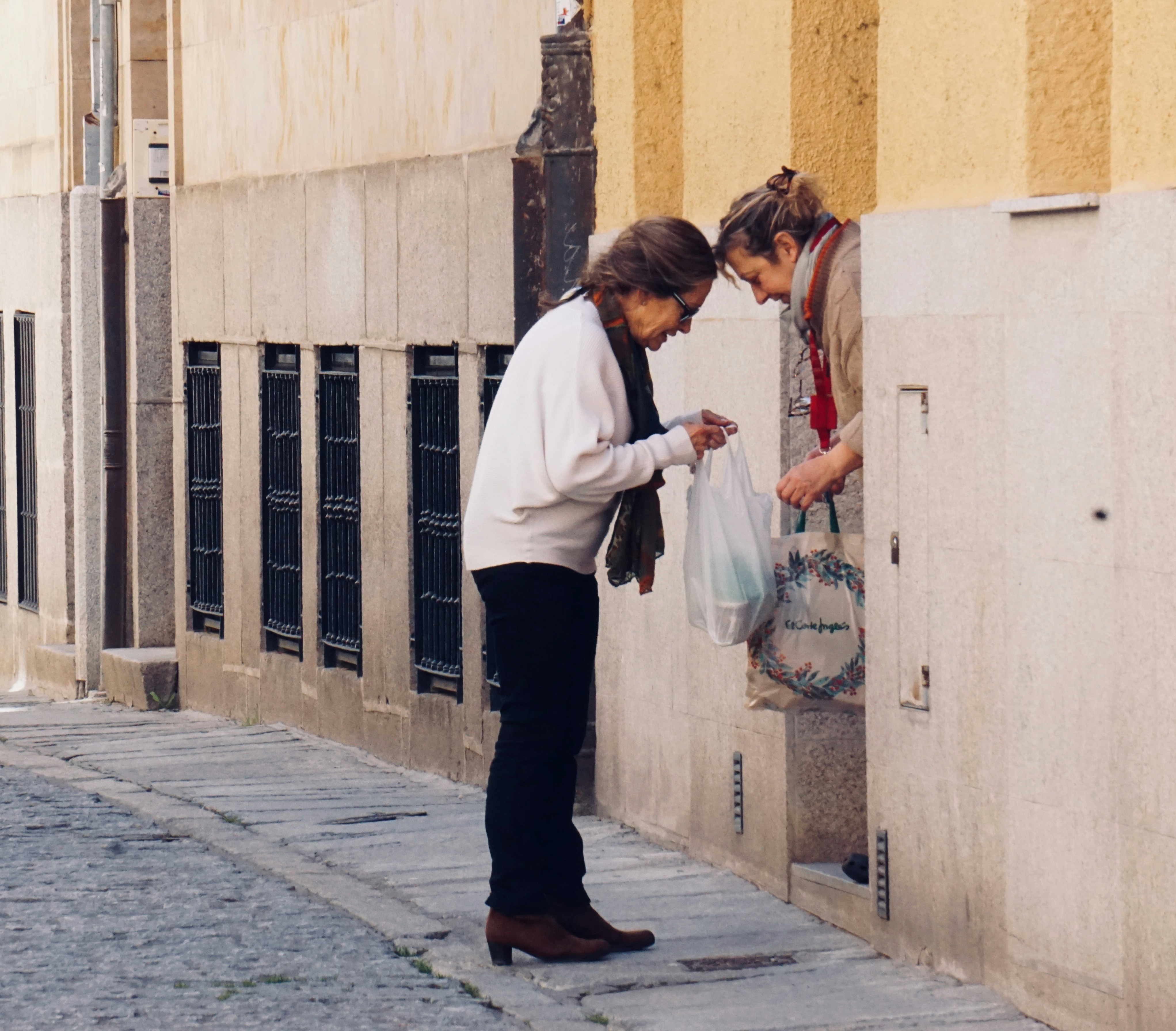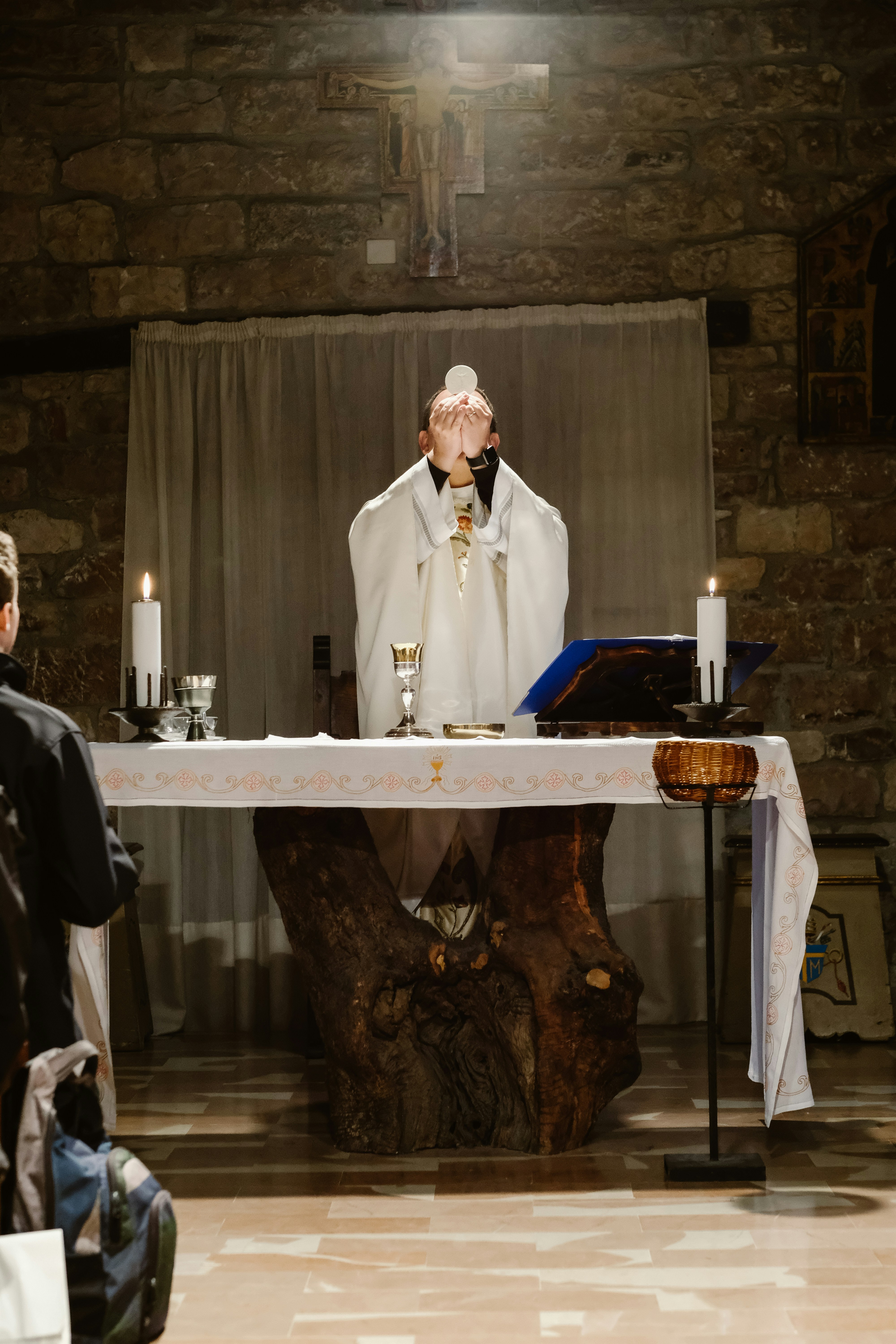Is your heart healthy? No, I’m not talking about the organ, though that’s important too. I’m talking about the part of you that shows mercy, justice, faithfulness – all those important qualities that Jesus mentions in today’s Gospel. Do we make an effort to work on our interior life? Or do we just cleanse the outside of the cup and allow filth and garbage to fill the inside?
Money isn’t everything. Yes, finances are of importance in our fallen world, and our Church needs our financial support. But more importantly, is your heart being changed by living for Jesus? Pharisees are very critical of other people and forget to look inside their hearts for major issues. While it is necessary to give fraternal correction, are you much more concerned with your own heart? What are you doing to root out the sin that settles into your soul?
The matters of the heart are much more important than money and outward appearances. The most important things aren’t financial, or physical, or worldly. One person who understood this well was St. Monica, who spent years praying for her son, St. Augustine, to be converted. St. Augustine lived a life more concerned with worldly affairs than with the things of the heart. St. Monica’s years of prayer for her son benefited his heart and had a dramatic effect on the Western world, since St. Augustine’s works and influence on the Church cannot be overstated. Both saints proclaim the dominance and importance of the interior life over exterior attractions.
Today, let us recommit to the importance of prayer and virtue over worldly distractions. Let us place prayer at the center of our lives with God, and let us pray that we may always be more concerned with our interior lives and forming virtue than our external, material lives.
¿Tu corazón está sano? No, no me refiero al órgano, aunque eso también es importante. Me refiero a la parte de ti que muestra misericordia, justicia, fidelidad, todas esas cualidades importantes que Jesús menciona en el Evangelio de hoy. ¿Nos esforzamos por trabajar en la vida interior? ¿O simplemente limpiamos el exterior del vaso y permitimos que la suciedad y la basura llenen el interior?
El dinero no lo es todo. Sí, las finanzas son importantes en nuestro mundo caído y nuestra Iglesia necesita nuestro apoyo financiero. Pero lo más importante es: ¿está cambiando tu corazón al vivir para Jesús? Los fariseos son muy críticos con otras personas y se olvidan de mirar dentro de sus corazones durante asuntos importantes. Si bien es necesario dar corrección fraterna, ¿estás mucho más preocupado por tu propio corazón? ¿Qué estás haciendo para erradicar el pecado que se ha instalado en tu alma?
Los asuntos del corazón son mucho más importantes que el dinero y las apariencias. Las cosas más importantes no son financieras, físicas o mundanas. Una persona que entendió esto bien fue Santa Mónica, quien pasó muchos años orando para que su hijo, San Agustín, se convirtiera. San Agustín vivió una vida más preocupada por los asuntos mundanos que por las cosas del corazón. Los años de oración de Santa Mónica por su hijo beneficiaron su corazón y tuvieron un efecto dramático en el mundo occidental, ya que no se pueden subestimar las obras y la influencia de San Agustín en la Iglesia. Ambos santos proclaman el predominio y la importancia de la vida interior sobre los atractivos exteriores.
Hoy, volvamos a comprometernos a la importancia de la oración y la virtud por encima de las distracciones mundanas. Pongamos la oración en el centro de nuestra vida con Dios, y oremos para que siempre estemos más preocupados por la vida interior y por la formación de la virtud que por la vida exterior y material.
 Mary Thissen is a St. Louis native living in East Central Illinois with her husband and children. She is blessed with twin boys Earthside and four children now living in Heaven. When she is not working as a healthcare data analyst or caring for her boys, she enjoys studying and writing about the Catholic faith and ministering to women who are suffering through miscarriage or infertility. You can connect with Mary on Instagram @waitingonmiracles.
Mary Thissen is a St. Louis native living in East Central Illinois with her husband and children. She is blessed with twin boys Earthside and four children now living in Heaven. When she is not working as a healthcare data analyst or caring for her boys, she enjoys studying and writing about the Catholic faith and ministering to women who are suffering through miscarriage or infertility. You can connect with Mary on Instagram @waitingonmiracles.
Feature Image Credit: Deb Dowd, unsplash.com/photos/gray-praying-hand-statue-IaCswSJ__uc


 Tami Urcia grew up in Western Michigan, a middle child in a large Catholic family. She spent early young adulthood as a missionary in Mexico, studying theology and philosophy, then worked and traveled extensively before finishing her Bachelor’s Degree in Western Kentucky. She loves tackling projects, finding fun ways to keep her little ones occupied, quiet conversation with the hubby and finding unique ways to love. She works full time at Diocesan, is a guest blogger on
Tami Urcia grew up in Western Michigan, a middle child in a large Catholic family. She spent early young adulthood as a missionary in Mexico, studying theology and philosophy, then worked and traveled extensively before finishing her Bachelor’s Degree in Western Kentucky. She loves tackling projects, finding fun ways to keep her little ones occupied, quiet conversation with the hubby and finding unique ways to love. She works full time at Diocesan, is a guest blogger on 
 Dr. Alexis Dallara-Marsh is a board-certified neurologist who practices in Bergen County, NJ. She is a wife to her best friend, Akeem, and a mother of two little ones on Earth and two others in heaven above.
Dr. Alexis Dallara-Marsh is a board-certified neurologist who practices in Bergen County, NJ. She is a wife to her best friend, Akeem, and a mother of two little ones on Earth and two others in heaven above.
 Deacon Dan Schneider is a retired general manager of industrial distributors. He and his wife Vicki have been married for over 50 years. They are the parents of eight children and thirty-one grandchildren. He has a degree in Family Life Education from Spring Arbor University. He was ordained a Permanent Deacon in 2002. He has a passion for working with engaged and married couples and his main ministry has been preparing couples for marriage.
Deacon Dan Schneider is a retired general manager of industrial distributors. He and his wife Vicki have been married for over 50 years. They are the parents of eight children and thirty-one grandchildren. He has a degree in Family Life Education from Spring Arbor University. He was ordained a Permanent Deacon in 2002. He has a passion for working with engaged and married couples and his main ministry has been preparing couples for marriage.
 Allison Gingras (
Allison Gingras ( 
 Kathryn Mulderink, MA, is married to Robert, Station Manager for Holy Family Radio. Together they have seven children (including Father Rob), and eight grandchildren. She is President of the local community of Secular Discalced Carmelites and has published five books and many articles. Over the last 30 years, she has worked as a teacher, headmistress, catechist, Pastoral Associate, and DRE, and as a writer and voice talent for Catholic Radio. Currently, she serves the Church by writing and speaking, and by collaborating with various parishes and to lead others to encounter Christ and engage their faith. Her website is
Kathryn Mulderink, MA, is married to Robert, Station Manager for Holy Family Radio. Together they have seven children (including Father Rob), and eight grandchildren. She is President of the local community of Secular Discalced Carmelites and has published five books and many articles. Over the last 30 years, she has worked as a teacher, headmistress, catechist, Pastoral Associate, and DRE, and as a writer and voice talent for Catholic Radio. Currently, she serves the Church by writing and speaking, and by collaborating with various parishes and to lead others to encounter Christ and engage their faith. Her website is 
 Mike Karpus is a regular guy. He grew up in Michigan’s Upper Peninsula, graduated from Michigan State University and works as an editor. He is married to a Catholic school principal, raised two daughters who became Catholic school teachers at points in their careers, and now relishes his two grandchildren, including the older one who is fascinated with learning about his faith. He also has served on a Catholic school board, a pastoral council and a parish stewardship committee. He currently is a lector at Mass, a Knight of Columbus, Adult Faith Formation Committee member and a board member of the local Habitat for Humanity organization. But mostly he’s a regular guy.
Mike Karpus is a regular guy. He grew up in Michigan’s Upper Peninsula, graduated from Michigan State University and works as an editor. He is married to a Catholic school principal, raised two daughters who became Catholic school teachers at points in their careers, and now relishes his two grandchildren, including the older one who is fascinated with learning about his faith. He also has served on a Catholic school board, a pastoral council and a parish stewardship committee. He currently is a lector at Mass, a Knight of Columbus, Adult Faith Formation Committee member and a board member of the local Habitat for Humanity organization. But mostly he’s a regular guy.


 Merridith Frediani loves words and is delighted by good sentences. She also loves Lake Michigan, dahlias, the first sip of hot coffee in the morning, millennials, and playing Sheepshead with her husband and three kids. She writes for Catholic Mom, Diocesan.com, and her local Catholic Herald. Her first book Draw Close to Jesus: A Woman’s Guide to Adoration is available at Our Sunday Visitor and Amazon. You can learn more at
Merridith Frediani loves words and is delighted by good sentences. She also loves Lake Michigan, dahlias, the first sip of hot coffee in the morning, millennials, and playing Sheepshead with her husband and three kids. She writes for Catholic Mom, Diocesan.com, and her local Catholic Herald. Her first book Draw Close to Jesus: A Woman’s Guide to Adoration is available at Our Sunday Visitor and Amazon. You can learn more at 

